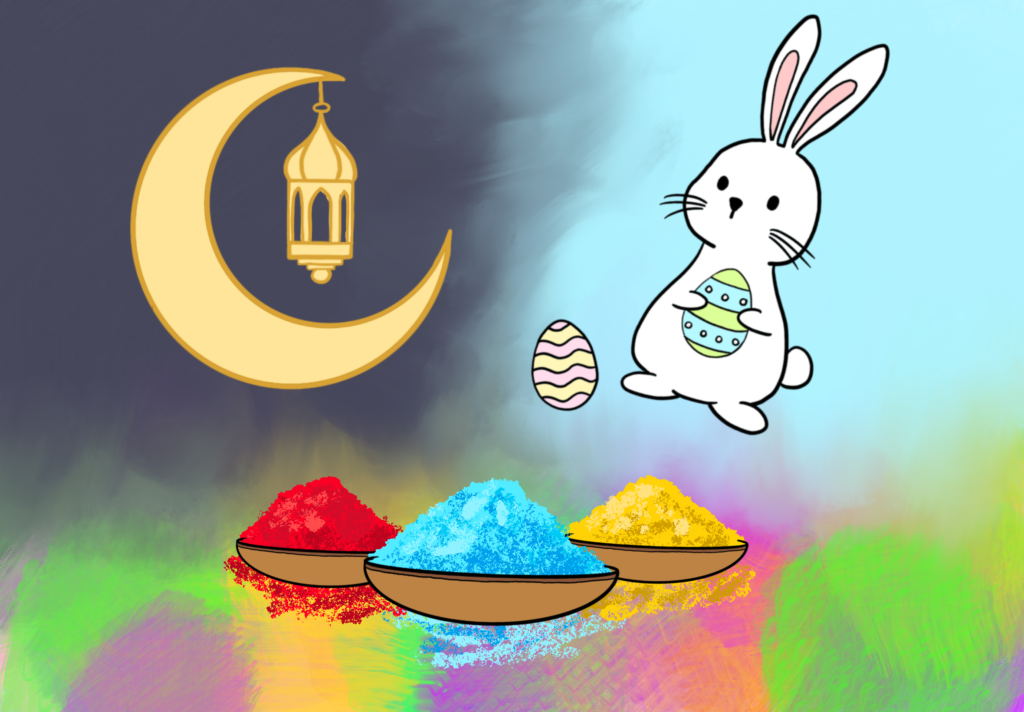Choate welcomed Ms. Emily St. John Mandel, author of this year’s required summer reading book Station Eleven, to speak to students and faculty on Wednesday, October 14. Apart from being the author of the widely-acclaimed novel, Mandel is also a 2014 National Book Award finalist and a 2015 PEN/Faulkner Award finalist.
The Summer Reading Committee, a group of seven English teachers, convened last year to select the summer reading and plan the author’s visit. As a part of the School’s 125th anniversary celebration, the committee also invited Choate alumnus Mr. Kelefa Sanneh ’93, a staff writer at The New Yorker, to interview Ms. Mandel on stage at an all-school meeting.
The school meeting did not include the usual open microphone Q&A session for students. Instead, the school meeting took the form of a candid conversation between the two guests.
The discussion between Ms. Mandel and Mr. Sanneh generally aroused positive reactions from the audience. James Rose ’18 commented, “I really liked this format of having a conversation, especially since the interviewer was so eloquent and relatable. I think the interview was very effective in keeping the audience engaged.”
However, many students expressed the need for student involvement in special meetings. Sabrina Xie ’17 suggested: “It would’ve been better if we had a special program at night instead of a school meeting, especially since I felt that the interview was rushed towards the end. Also, if we had a special program, there would’ve been enough time for some form of student interaction.”
Two of the most-discussed topics in the interview were the book’s fictional pandemic and its recurring allusions to Shakespeare. Ms. Mandel explained, “I did a fair amount of research in historical pandemics, which made me realize the extent of smallpox’s influence—particularly how it affected Shakespeare’s life and the era that he lived in. That finding cemented my decision to make the traveling company an exclusively Shakespearean company, because it seemed that people in Shakespeare’s time would have also been somewhat haunted by memories of the pandemics.”
As writers, Ms. Mandel and Mr. Sanneh both incorporate their passions into their work. In accordance with her interest in the arts, Ms. Mandel had the idea of having a traveling company of actors in a post-apocalyptic setting in Station Eleven. Ms. Mandel explained: “I wanted to write about the lives of actors because I’m very interested in film and theater; I wanted to write about what it meant to devote your life to art. But I also wanted to write about the modern world, in terms of the apparatus of technology. So it occurred to me, an interesting way to write about that would be to write about its absence, to consider what lives would be like if all technology that we take for granted was gone.”
Similarly, Mr. Sanneh used the skills and passions he had developed at Choate to serve a greater audience. While at Choate, Mr. Sanneh explored his passion for music by playing in a rock band and hosting a show on School’s radio station. After working for seven years as the pop-music critic for The New York Times, Mr. Sanneh moved over to write for The New Yorker in 2008.
After the school meeting, Mr. Sanneh had the opportunity to visit a sophomore English class to talk about his experiences as a journalist and answer questions that students had. He offered his advice to the students in the class: “The important thing is having something that you are excited, passionate, and obsessed about even if that has nothing to do with school. When I was attending school at Choate, I did the radio station. You wouldn’t have believed it at the time that my passion for music, in a way, would end up being my career—I was just a kid who was obsessed with records. For me, it’s these interests that really ended up shaping my life.”
Ms. Mandel is working on another novel, as well as a full-length version of the comic book in Station Eleven.
To aspiring writers, Ms. Mandel advised, “There are two things. The first is to read constantly, and read things that are challenging. Even books that are bad can teach you a lot about writing because you can think about why the book didn’t work. My second advice is actually from a quote by Neil Gaiman: ‘You have to finish things—that’s what you learn from, you learn by finishing things.’ It’s easy to start anything, but finishing is how you push through difficult moments and become a writer.”



